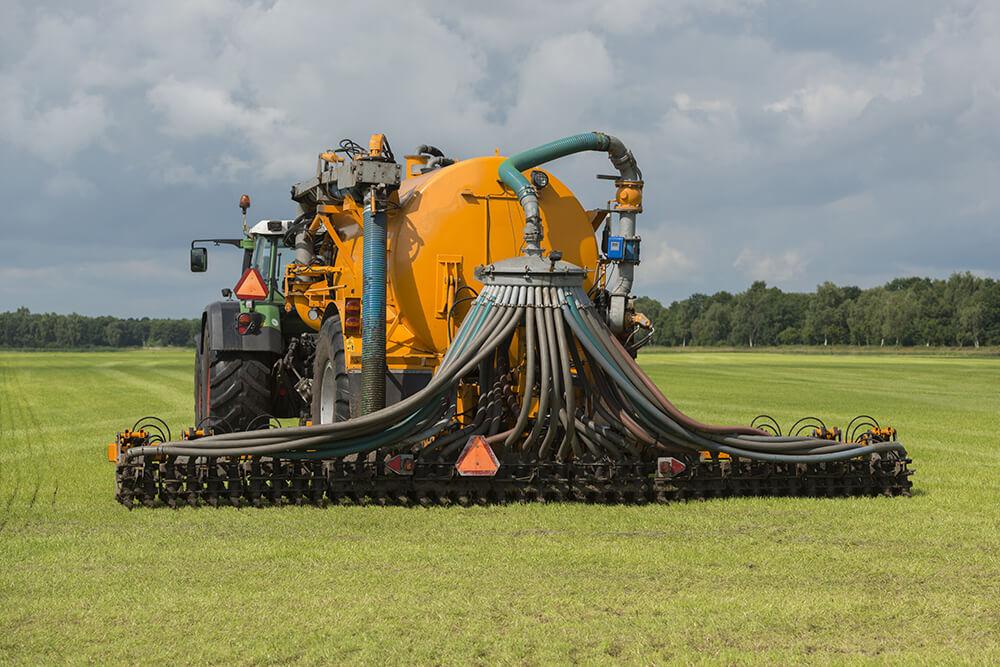200 million tons of excrement in Germany
With the increasing demand for animal products, feedstock is also rising. This creates a real problem. The 200 million tons of manure that occur each year in Germany alone, must also be dumped somewhere – in the truest sense of the word. In traditional farming the extremely nitrogenous manure were spread on the fields as fertilizer, and today it’s still mostly like that. The plants absorb the nitrogen and are accelerated in growth.
Polluted drinking water
But if the ground is exposed to more nitrate than the plants can absorb, the remainder is washed into the groundwater. A high nitrate level in the soil is poisonous to many plants. In lakes and rivers it kills fish and in the drinking water it’s harmful to humans. In recent years new anaerobic digestion plants have been built, in which the manure is converted into biogas. What remains is the fermentation residue, which can also be spread on fields. The problem: the nitrogen is not consumed in the biogas process, but remains in the digestate. With the result that fertilizing with too much digestate, also contributes to nitrate pollution.
Botres biorefineries recycle 100% of the fermentation residue
Botres biorefineries produce clean water, fertilizer, but also essential food proteins and amino acids from the fermentation residue. Our largest facility already treats 1,000 tons of digestate per day. 2/3 is converted into clean water. The remaining high-quality fertilizer can be used where it’s really needed.
